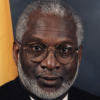David Satcher

David Satcher
David Satcher, M.D., Ph.D. FAAFP, FACPM, FACPis an American physician, and public health administrator. He was a four-star admiral in the United States Public Health Service Commissioned Corps and served as the 10th Assistant Secretary for Health, and the 16th Surgeon General of the United States...
NationalityAmerican
ProfessionPublic Servant
Date of Birth2 March 1941
CountryUnited States of America
country people needs
The people of this country desperately need to engage in an open and honest debate about mental health.
thinking people community
People tend to think of overweight and obesity as strictly a personal matter, but there is much that communities can and should do to address these problems.
people healthy research
This is no time to let down our guard on youth violence. Research demonstrates that appropriate interventions made during or prior to adolescence can direct young people away from violence toward healthy and constructive lives.
believe develop discuss harm hoard issue people resistant treatment understand
We believe the treatment is to really discuss this issue with (patients) and to try them make them understand that we are able to respond, but to also understand the harm that can be done if people hoard antibiotics, use them inappropriately so that we develop more resistant strains
access chronic deaths diseases dying either greatest inability occurred people poor resulted risks suffering sure
I'm sure that many of the deaths that have occurred (after the hurricane) have resulted from people with chronic diseases either suffering from dehydration or (the) inability to access their medications, ... All of these risks of suffering from chronic diseases and dying from them were greatest for the poor and the other people who could not get out of there.
believe died hard people sad suicide
It's hard to believe that more people have died from suicide than homicide, but it's a sad fact,
available failure help people strategy tragic
Failure to effectively use every intervention strategy available to help our young people would be a tragic mistake,
bodies consider deal floating health history hopeless mental people prepared ready saw scene situation sort
I think the history is such that we underestimate the mental health problems, ... As people see what they consider sort of a hopeless situation - bodies floating on the water, the scene like they saw in the Superdome - people are not ready for that. They are not prepared to deal with it.
health healthy individual larger people premise underlying
The underlying premise of Healthy People 2010 is that the health of the individual is inseparable from the health of the larger community,
country children believe
We believe that more than 4 percent of the children in this country suffer ADHD... We want to know how to better identify and refer children for treatment.
years two smoking
Seventy-five percent of women who smoke would like to quit, and yet only two to three percent quit every year... It's significant because we can help women quit smoking.
america community challenges
Otis Brawley is one of America's truly outstanding physician scientists. In How We Do Harm, he challenges all of us-- physicians, patients, and communities-- to recommit ourselves to the pledge to 'do no harm.'
blood speak nations
Our nation's blood supply is safer than it's ever been, and it's getting safer as we speak
country impact hurricanes
The same things that lead to disparities in health in this country on a day-to-day basis led to disparities in the impact of Hurricane Katrina.